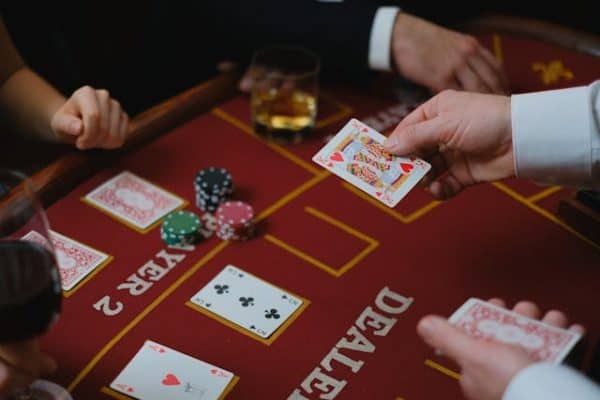In poker, players often use psychological tactics to gain an advantage over their opponents. These tactics can range from bluffing to reading opponents’ behaviors, aiming to influence decision-making processes and outcomes.

The Basics of Psychological Warfare in Poker
When players sit down at a poker table, their skills, strategies, and psychological acumen are put to the test. The game is about reading opponents, managing one’s own image, and manipulating the psychological state of others. The person who masters these aspects can control the flow of the game, making psychological warfare an essential skill in poker.
Reading Body Language and Tells
Body language provides a wealth of information. Skilled players observe their opponents closely, picking up on involuntary cues known as “tells.” These tells can be anything from a move of the eyebrows to a change in breathing patterns. Recognizing these signals can give a player insight into whether an opponent is confident in their hand or bluffing.
Managing Your Own Image
How a player is perceived at the table can significantly impact their success. By deliberately presenting a certain image, whether as a cautious player or a risk-taker, one can influence how opponents react to their plays. Altering this perceived image at strategic moments can throw opponents off balance, creating opportunities to exploit.
Psychological Manipulation Techniques
- The Bluff: The most well-known tactic involves convincing opponents that one’s hand is stronger or weaker than it actually is. The success of a bluff depends on its believability and the current psychological state of the opponents.
- The False Tell: Intentionally displaying a false tell can mislead observant opponents into making incorrect assumptions about one’s intentions or the strength of one’s hand.
- The Talk: Engaging opponents in conversation can reveal information about their confidence level and strategy. It can also be used to distract or intimidate them.
- The Stall: Taking longer than usual to make a decision can unsettle opponents, making them second-guess their own strategies and potentially leading to mistakes.
- The Pressure: Increasing the stakes, especially in a tight situation, can create stress for opponents, forcing them into risky decisions.
Establishing Mental Resilience
To effectively engage in psychological warfare, a player must also be mentally tough. This means being able to maintain concentration and composure regardless of the game’s pressures. It involves managing one’s own emotions to prevent giving away tells and to stay focused on the strategic aspects of the game.
Advanced Strategies: Beyond the Basics
As players become more experienced, they develop more sophisticated psychological strategies. They learn to read the game’s dynamics, recognizing patterns in opponents’ behaviors and adapting their tactics accordingly. They also become better at controlling the informational flow at the table, selectively revealing or concealing intentions to serve their strategy.
The Ethics of Psychological Warfare in Poker
While psychological tactics are a legitimate part of the game, some players may take it too far. Engaging in unethical behavior, such as blatantly lying or insulting opponents, can be damaging to the game’s integrity and lead to negative consequences. It’s important for players to maintain a level of respect and sportsmanship, even while engaging in psychological warfare.
The Role of Chance in Poker
Despite the game’s psychological aspects, chance still plays a significant role. Players can have all the skills and strategies in the world, but luck can still be a determining factor in the outcome of a game. Accepting and managing the role of chance is crucial to maintain a healthy mindset and avoid becoming too emotionally invested in individual games.
Poker: A Mental Battle Poker’s essence lies in its blend of cognitive challenges and the test of emotional resilience. At its core, the game demands more than an understanding of the rules or the strength of the cards in one’s hand. Success at the poker table emerges from a player’s capacity to read the subtle cues of opponents, to anticipate moves before they happen, and to craft a strategy that adapts fluidly to the unfolding dynamics of the game. Mastery in poker is as much about navigating the psychological landscape of the game as it is about the technical execution of play.
 Gearfuse Technology, Science, Culture & More
Gearfuse Technology, Science, Culture & More


